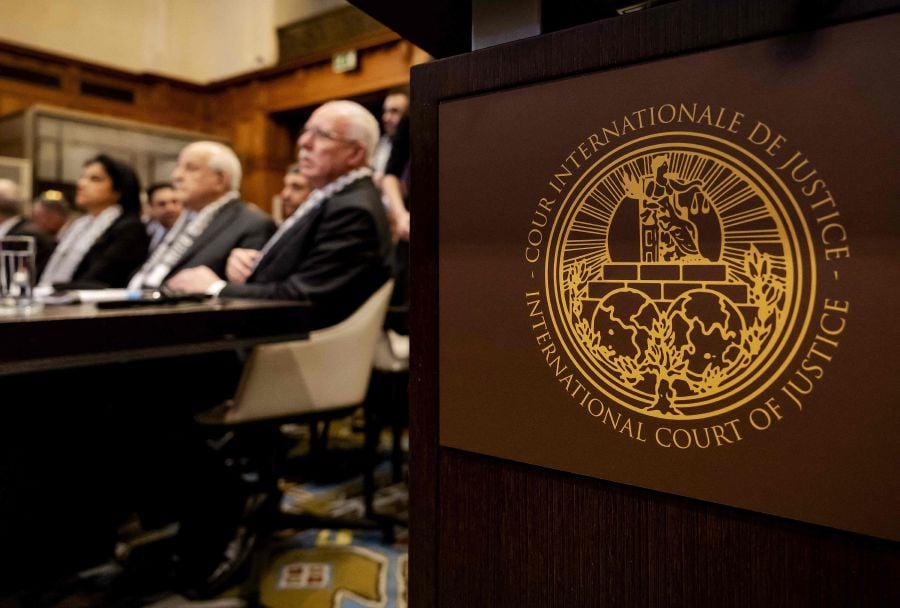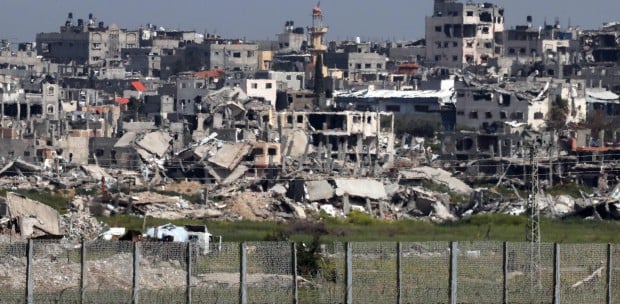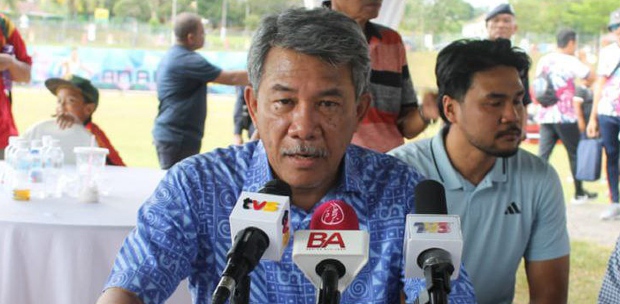TOMORROW, Foreign Minister Datuk Seri Mohamad Hassan (more affectionately known as Tok Mat) will be at the International Court of Justice (ICJ) at the Hague in the Netherlands.
His task: to participate in the oral hearings at the ICJ. His mandate: ensure Malaysia's unwavering support for Palestine is heard.
The hearing is about a Request for Advisory Opinion on the "Legal Consequences arising from the Policies and Practices of Israel in the Occupied Palestinian Territory, including East Jerusalem".
If you thought that was a mouthful, wait until you hear the question that has been posed for the opinion that is being sought.
This is a different case from the one that South Africa brought to the court. That was a genocide case. This one running from Feb 19 to 26 is more a request on the legal ramifications of Israel's policies in the last seven decades that have changed the composition of the population in East Jerusalem and were discriminatory to the people whose land has been illegally occupied.
Since 1967, the United Nations General Assembly (UNGA) has adopted a resolution on Israel's occupation. However, in 2022, this annual resolution included a paragraph requesting the ICJ to render an Advisory Opinion.
Resolution 77/247, sponsored by Cuba and Brunei among others, was adopted with 87 votes in favour, 26 opposed and 53 abstentions. Twenty-seven countries did not vote. Malaysia, of course, voted in favour.
One of the main reasons the UNGA was able to take that step in 2022 was because Navi Pillay, who heads the UN Human Rights Council's commission of inquiry on Palestine and Israel, had the guts to include it as a recommendation in the report that her team submitted to the UNGA.
On Feb 3 last year, the ICJ opened the case for written submissions from interested states. Malaysia was among the 57 states that sent written submissions before the July 2023 deadline. Then states were allowed to send in written comments in addition to the written submission.
Finally, on Feb 9 this year, the ICJ announced it would hold public hearings for the case and invited interested states to indicate their interest. A total of 52 states, including Malaysia, have signed up; in legal terms, they will deliver oral submissions to the court. Israel has submitted its written statement, but will not be participating in the oral submissions this week.
On Thursday, Tok Mat will deliver a 100-page oral submission on behalf of Malaysia. In his delegation will be the team that has been working behind the scenes to get us to this point. They are officials from the Foreign Ministry and the Attorney-General's Chambers, people who have spent the last few years working quietly, but no less effectively, on this project.
Malaysia is one of only two countries in Southeast Asia that have been given a slot in the six-day hearing that will start with Palestine and end with the Maldives. We want to be heard. We need to be heard.
It matters not one whit that this is the same court that in 2004 ruled Israel's separation wall in the West Bank violated international law and must be dismantled. It matters not that despite the ruling, the wall still stands 20 years on.
It doesn't even matter that despite the ICJ's provisional measure against Israel on Jan 26, the genocide continues. We cannot sit in silence and accept what is happening, like a possum does when facing an enemy.
We have to give the rules-based order the opportunity to make a difference and enforce the system that it has asked others to adhere to. If it fails, we have to allow it to fail spectacularly.
We must not save it by not asking it to make these difficult decisions.
And because, as the ICJ itself has put it, advisory opinions are "not legally binding but carry great moral weight", we must let the world see the true morality of those who are in the right versus those with might.
When everything we do will be judged in hindsight, it is more imperative than ever that we do what is right. Right now, what is right is making Malaysia's voice heard, as Tok Mat will be doing.
The writer is a foreign service officer who has served in bilateral and multilateral posts






